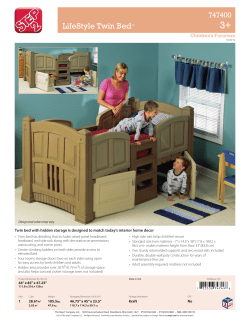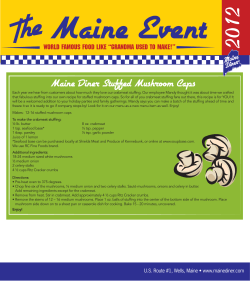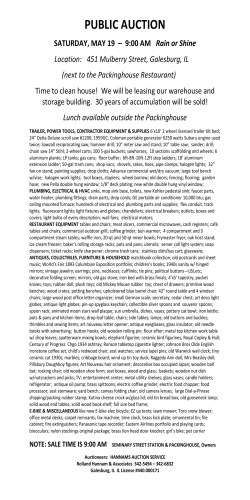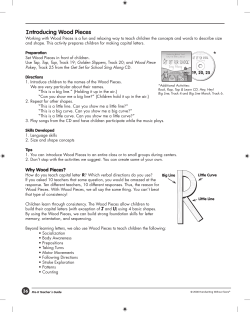
The Azurescens Foundation
The Azurescens Foundation Disclaimer Materials Preparation of Maltextract Agar Germination of Spores Isolation of Pure Mycelium Expansion of Mycelium on Wood Substrate Preparation of an Outdoor Bed About Psilocybe azurescens |< < Disclaimer The following document, concerning the cultivation of wood-decomposing mushrooms, is FOR INFORMATION PURPOSES ONLY. *Among the mushrooms that can be cultivated with little difficulties are producers of tryptamine compounds. The cultivation of these species may be prohibited in your country. DO NOT BREAK ANY LAW! Under no circumstances will the homepage maintainers, or any contributors, be liable for any damages from your reliance upon anything derived from this homepage even if the homepage maintainers have been advised that such defect or unsuitability exists. The homepage maintainers and contributors disclaim all liability to you for damages, costs and expenses, including legal fees, and YOU HAVE NO REMEDIES FOR NEGLIGENCE OR UNDER STRICT LIABILITY, OR FOR BREACH OF WARRANTY OR CONTRACT, INCLUDING BUT NOT LIMITED TO INDIRECT, CONSEQUENTIAL, PUNITIVE OR INCIDENTAL DAMAGES, EVEN IF YOU GIVE NOTICE OF THE POSSIBILITY OF SUCH DAMAGES. If you do not or can not agree to the above, please leave now. *There are very tasty gourmet mushrooms such as Stropharia rugosa-annulata, that can be cultivated as explained in the document. >| > Materials |< < Mushroom spores Pressure cooking pot >| > Glass jars Inoculation instruments: Instead of a professional inoculation loop a pair of tweezers can be used, it is just a bit more tricky to handle. Agar Maltextract Wood chips (beech, alder, hazelnut, ...) |< < Preparation of Maltextract Agar Maltextract agar can easily be prepared in a common kitchen. The most expensive thing needed is a pressure cooking pot. The medium must be sterilised (autolclaved), or you will grow nothing but mold. To 100 ml water add 4g maltextract and 2g agar Bring the liquid to boil to secure all solid particles are solved. >| > |< < Fill the medium in suitable containers such as jars of not more than 10cm height (the smaller the better to handle). Pour about 1cm of medium in the jars. The jars are covered with the caps, but do not screw them thight, or the jars will break during cooking!!! The caps can additionally be covered with tin foil to minimize the risk of airborne contamination. The jars are placed in the pressure cooking pot filled with several cms of water. Close the pot and slowly bring to boil. When the max. pressure is reached, the temperature in the pot is higher than 121°C. This is hot enough, if maintained for 20 minutes, to kill any spores of mold and bacteria. After this time period let the pot cool to room temperature. >| > |< < Germination of Spores Short: Place some of the mushroom spores on sterile maltextract agar. Let the glass stand at room temperature (18 to 24°C/65 to 75°F). The spores will germ within a few days. Three weeks later the mycelium should be visible as cottony white hairs growing in all directions from where the spores had been placed. How to transfer spores to maltextract agar in a sterile way: 1) The working place is cleaned and sterilized with 70% ethanol. 2) If tweezers are used, sterilize them in a gas flame. >| > |< < 3) Glow the inoculation loop, so it is sterile. 4) Cool the loop by placing it on the sterile agar. The spores will stick on the wet loop. 5) Spores are picked with the cooled inoculation loop and are 6) Transfered into the jar with maltextract agar. >| > |< < >| > Wait about three weeks for the spores to germinate and the mycelium to grow. |< < Isolation of Pure Mycelium >| > Mycelium of Psilocybe azurescens about 25 days after germination from spores: Now it is time to take a little piece of white mycelium and put it in a fresh jar with agar medium. Instead of an inoculation loop a lancet or similar can be used. You should prefer thick filamentous structures (rhizomorphic mycelium). Sometimes this isolation of pure medium has to be repeated several times until a really pure culture free of any contaminants is obtained. A contamination is anything that grows on your medium that is not the mycelium. When brought on new agar, the mycelium needs about one day to recover and until new growth can be seen. Wet sterilized cardboard can be used as a much more selective medium, if serious problems occur in isolation of a pure culture on agar. |< < Expansion of Mycelium on Wood Substrate From a pure culture the mycelium can be propagated further. A very good wood substrate are fresh hard wood chips presoaked in water. Excellent for the expansion of P. azurescens: Fresh cut hazelnut twigs and/or hard wood chips >| > |< < >| > Put them in as big glas jars as fit in your pressure cooking pot. The jars should only be filled to two third, this allows you to shake the wood chips in the jars. The wood should not be sitting in water, and the ideal moisture content is 60 to 65%. The procedure for sterilization is exactly the same as for the preparation of malt extract agar, except for the cooking time which must be increased to a full hour or more at max. pressure, depending on the container size. Do not forget that the caps should not be screwed tight during sterilization!!! As soon as the jars have cooled down to room temperature they can be inoculated with several pieces of agar culture or if available wood spawn. Shake the jars to even distribute the agar pieces. After the shaking the caps are unscrewed a bit to ensure gas circulation and covered with tin foil to prevent airborne contamination. A few days later growth of the mycelium should be visible. The jars can then be shaked again to accelerate the expansion of the mycelium. The cultures are ready for the inoculation of more substrate, when they are completely grown through with mycelium. |< < >| > Hazelnut chips inoculated with beech dowel Hazelnut chips ready for inoculation of more wood substrate |< < The wood and the mycelium form a compact mass of a white colour wich produces a characteristic mushroom odour when broken up. This mass of mycelium, suitable for the preparation of an outdoor bed, is called spawn. Instead of jars, heat resistant polypropylene bags can be used to expand the mycelium to the wished volume, but the risk of contaminations is higher. Do not use contaminated cultures to inoculate new substrate!!! If a jar or a bag is contaminated, forget it or for the case there is only little contamination, place the spawn outdoor in a half shaded location and check in autumn for mushrooms. >| > |< < Prepapration of an Outdoor Bed An outdoor bed is nothing else than a 15 to 20cm deep hole in the soil filled with wood substrate. Once a volume of one to several liters of mycelium on wood substrate has been obtained, the preparation of an outdoor bed is the final step, which will lead to beautiful mushrooms growing in your garden every year in late autumn and this for years. A mushroom patch can be prepared at every time in the year except if the soil is frozen. The chance for fructifications in autumn are excellent, if a bed is layed out in spring or even in autumn of the preceding year. The bed on the pictures was layed out only three months before harvest season and it showed fructifications in the same year, but the result may have been better if the bed had been prepared earlier. The later the patch is layed out, the more spawn has to be used to secure fructifications in autumn, and the later the mushrooms will appear. Of course you can also prepare much smaller patches; I saw marvellous mushrooms growing from as little as 0,3 litres of contaminated spawn that had been discarded in a garden near a compost pile. Fresh chopped wood chips (preferable beech, alder, hazelnut...) >| > |< < >| > The wood spawn is added (at least 1/5th of total volume) and mixed well with the chips. |< < A suitable place for the bed is a half shaded location below a shrub like this. A 15 to 20 cm deep hole is opened and filled with the wood chips/spawn mixture. The bed is watered with several liters depending on its size. The patch can additionally be covered with wet cardboard and perforated plastic or anything that keeps moisture high. Do not give to much water! It is better to repeat watering a week later than to give too much first. Make sure the bed is humid the first two weeks but not wet, then you will not have to give any more water until september. If you overwater during summer, the mycelium may grow agressiveley, but you will probably see no mushrooms in late autumn. >| > |< < >| > That is the way a mushroom bed may look during summer: Note the white mycelium below and on the cardboard: Not only mushrooms, but also amphibians like the humid environment. Here you see Salamandra atra on a bed of Psilocybe azurescens. |< < From september on keep the patch wet by watering once or twice a week. This is not necessary if it is raining a lot, what is not unusal in this season. In late september to early october, when the temperatures drop to 7°-10°C (45°-50°F), the first mushrooms can be expected, and they grow in usually two flushes about a month apart, until the temperatures drop below zero. Depending on the temperatures, mushrooms may even grow until january. By placing a tent over the bed, the fructification time can be prolonged. The cardboard, the bed is covered with, is itself used by the mushroom as medium. A new bed of wood chips could be inoculated just by placing the infected cardboard on a small layer of wood chips at the bottom of the new bed, and by covering the cardboard with wood chips. When the temperatures drop below 0°C the mushrooms stop growing. A layer of new wood chips can be worked in the top of the patch; this is the nutrition for the next year. Treated that way, a mushroom bed may last for decades and zillions of spores will be set free. >| > |< < The story of Psilocybe azurescens Stamets & Gartz This species originates from the Columbia river basin near Astoria, Oregon and was first found in 1979. It grows in beds of hardwood or conifer chips inhalf shaded environments. It belongs to the so called Psilocybe cyanescens complex. This means it is closeley related to Psilocybe cyanescens and Psilocybe cyanofibrillosa. Psilocybe azurescens is distinguished by its comparatively great size and some microscopic characteristics. But the most exclusive feature of this species is its production of secondary metabolites: Typical analysis of dried P. azurescens (%) (Gartz1995): mushroom psilocybin 1 2 3 4 1,40 1,56 1,68 1,71 psilocin 0,31 0,30 0,28 0,34 baeocystin 0,28 0,32 0,38 0,41 >| > |< < These data make clear, that P. azurescens is able to accumulate as high levels of tryptamine alkaloides as 25 milligram, per gram of dried mushrooms. With these values it is the mushroom with the highest alkaloid concentrations, of all psilocibin mushrooms known so far. Latin description published by Stamets and Gartz in 1995: Psilocybe azurescens Stamets & Gartz sp. nov.: Pileo ochreato-brunneo, hygrophano, viscido, pellicula separabili intructo, conico dein convexo, plano 30-100 mm lato, umbonato. Lamellis sinuato-adnatis, pallidis vel brunneo. Stipite albo, sricto elongato, 90-200 mm, fibrillis cum strigositate basis caerulescentibus. Carne caerulescente. Sporis 13-13.5x6.5-8.0 micron Cystidiis fusoid-ventricosis. Cheilocystidiis 23-28x6.5-8.0 micron; pleurocystidiis 23-35x9-10 micron.
© Copyright 2026











